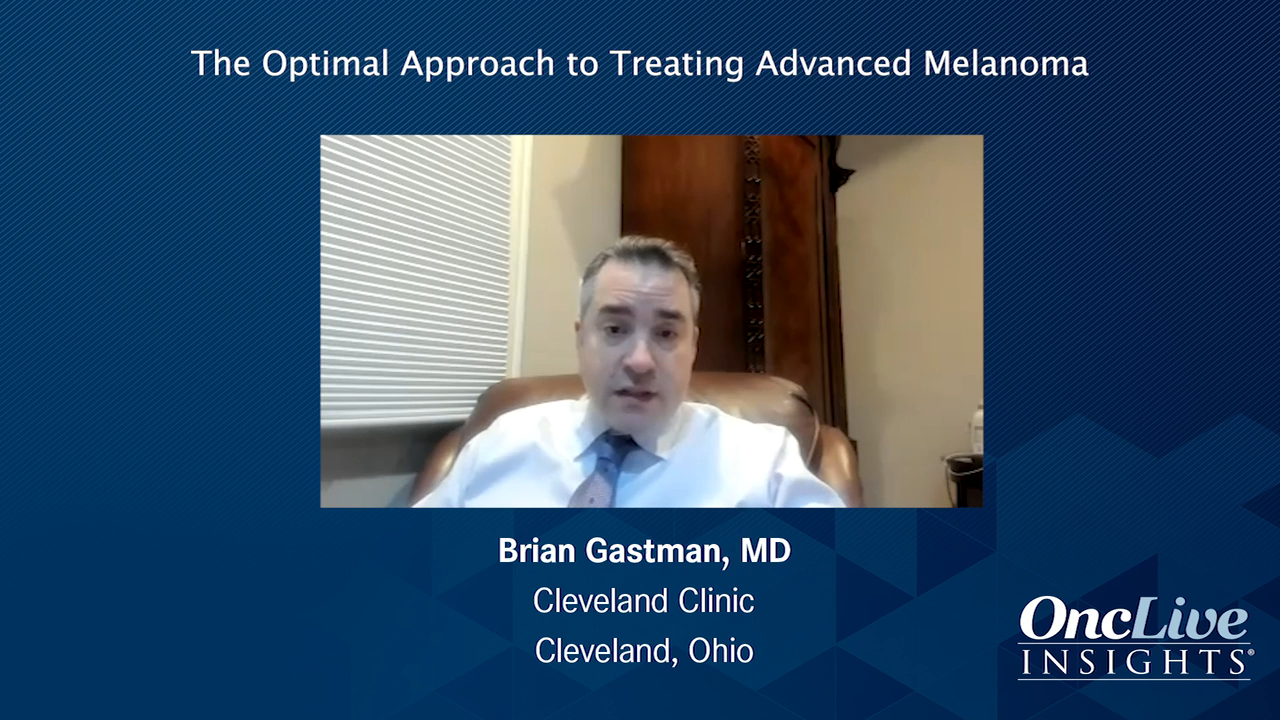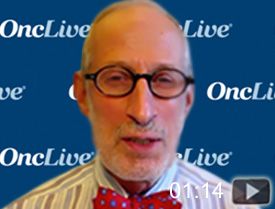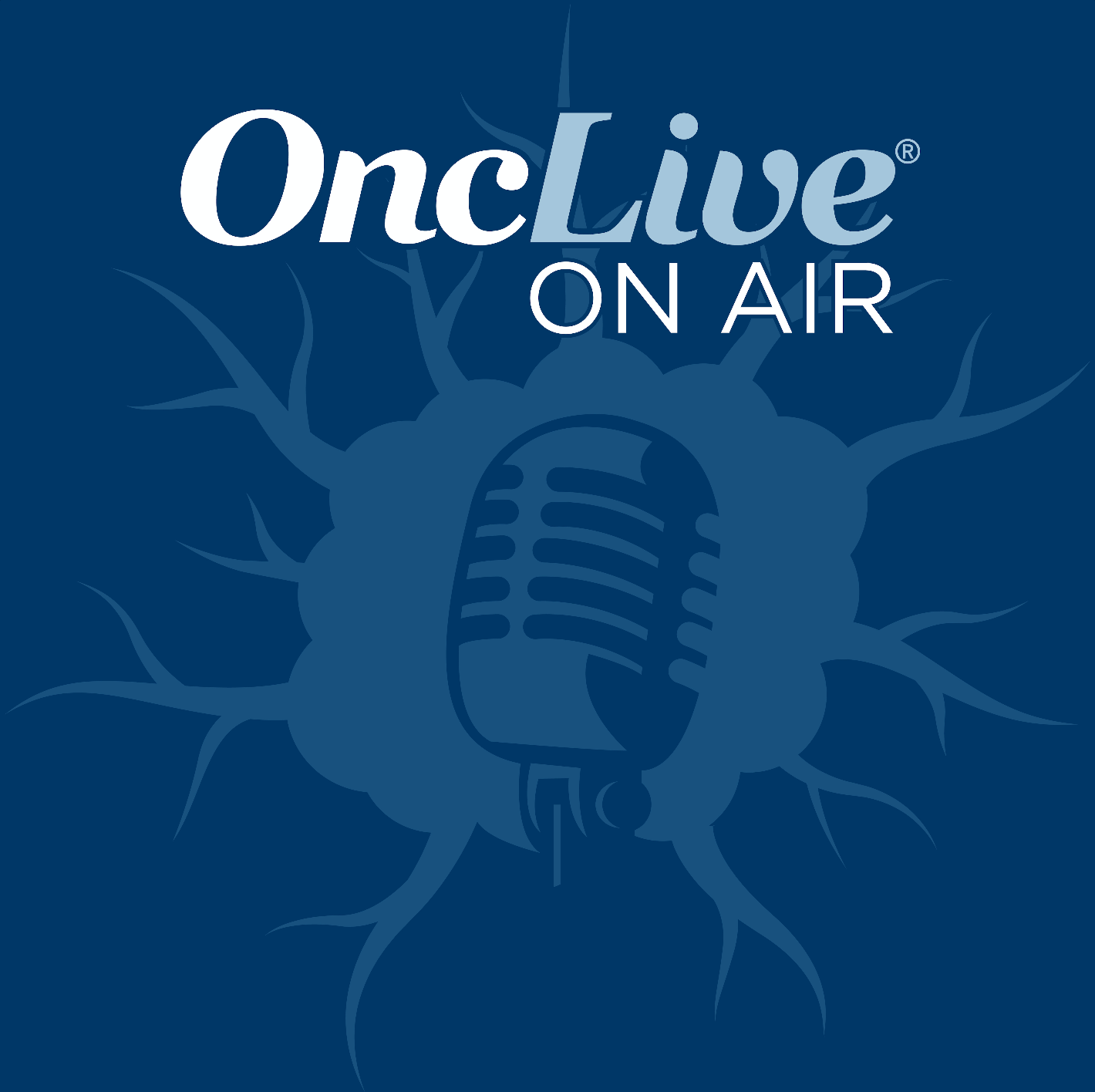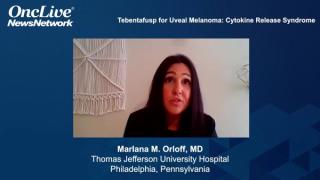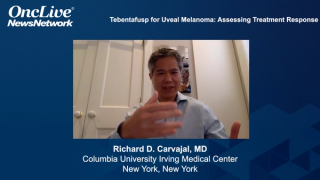
Melanoma & Skin Cancer
Latest News
Latest Videos

CME Content
More News

Jason J. Luke, MD, FACP discusses the role of precision medicine and how it continues to lead the way in all areas of oncology, but especially in melanoma.

Suthee Rapisuwon, MD, discusses the frontline treatment of acral and mucosal melanoma.

Jeffrey S. Weber, MD, PhD, deputy director and co-director of the melanoma program, Laura and Isaac Perlmutter Professor of Oncology, Department of Medicine, NYU Langone Health’s Perlmutter Cancer Center, 2016 Giant of Cancer Care® in Melanoma, discusses the treatment of lactate dehydrogenase (LDH)–high melanoma.

Jason J. Luke, MD, FACP, discusses the role of molecular testing in melanoma.

November 24, 2020 - Until now, the field of cell-based immunotherapy has been dominated by chimeric antigen receptor (CAR) T cells, with groundbreaking FDA approvals for 3 drugs across several types of hematologic malignancies. In solid tumors, however, CAR T-cell therapies have yet to gain ground.
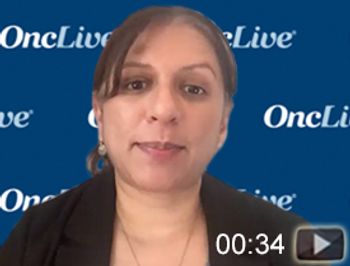
Ragini Kudchadkar, MD, discusses the durability of immunotherapy in non-melanoma skin cancers.

November 23, 2020 - Tebentafusp showed superiority in overall survival compared with investigator’s choice of therapy in patients with previously untreated metastatic uveal melanoma.

November 20, 2020 - Circulating tumor DNAhas been found to be a reliable indicator of outcomes to treatment with frontline immune checkpoint inhibitors in patients with metastatic melanoma, but not in the second-line setting.

The emergence of immunotherapy in the melanoma treatment landscape has shifted the management of the disease; however, no strategies are in place to appropriately stratify patients for these potentially life-saving agents.

November 19, 2020 - A computational method comprised of clinicodemographic variables with deep learning of pretreatment histology images may be able to effectively predict response to immunotherapy in patients with advanced melanoma.
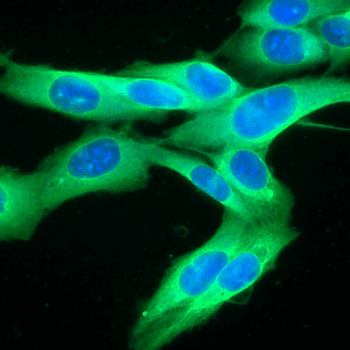
November 14, 2020 – Treatment with the novel intratumoral immuotherapy agent PVSRIPO resulted in an overall response rate of 33% among all patients with anti–PD-1 refractory melanoma.

November 13, 2020 - Treatment with the combination of eganelisib, a selective PI3K-γ inhibitor, and nivolumab demonstrated encouraging clinical activity and a favorable safety profile in patients with head and neck squamous cell carcinoma.

Francesca Aroldi, discusses the early efficacy data with RP2 in advanced solid tumors.
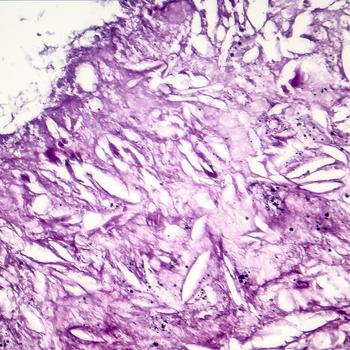
November 13, 2020 - The combination of bempegaldesleukin and the PD-1 inhibitor nivolumab elicited a confirmed best overall response rate of 53% in efficacy-evaluable patients with metastatic melanoma.
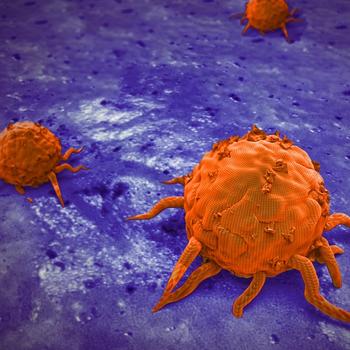
November 13, 2020 - In an effort to expand the benefit of immunotherapy to nonresponders or those who have relapsed, the novel STING agonist SB 11285 is being evaluated as a monotherapy and in combination with atezolizumab in patients with advanced solid tumors in a phase 1/1b dose-escalation trial.
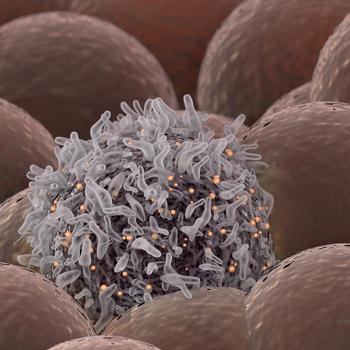
November 13, 2020 - The addition of plasmid IL-12 pembrolizumab resulted in durable responses, as well as several complete responses, in patients with advanced melanoma who were refractory to PD-1–directed therapy.

November 12, 2020 — Pembrolizumab led to a 38% central nervous system response rate and was well tolerated in patients with leptomeningeal metastasis from solid tumors. However, the study was closed early due to poor accrual.

November 12, 2020 - The investigational PD-L1 inhibitor cosibelimab demonstrated durable and robust responses in patients with non–small cell lung cancer and cutaneous squamous cell carcinoma.

November 12, 2020 - The combination of CMP-001 intratumoral injection and pembrolizumab was found to reverse PD-1 blockade resistance and elicit durable systemic responses in patients with advanced melanoma.
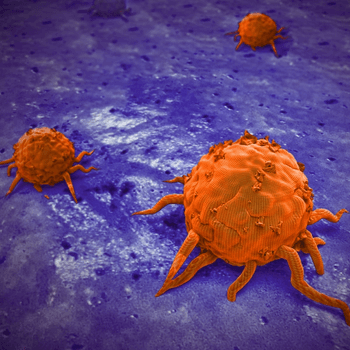
November 12, 2020 - Cemiplimab demonstrated clinically meaningful antitumor activity, including durable responses, and acceptable safety in patients with metastatic basal cell carcinoma after progression on or intolerance to hedgehog inhibitors

November 12, 2020 - In an effort to further improve outcomes without sacrificing tolerability, the combination of cabozantinib with pembrolizumab is being evaluated in patients with advanced melanoma in a phase 1b/2 study.
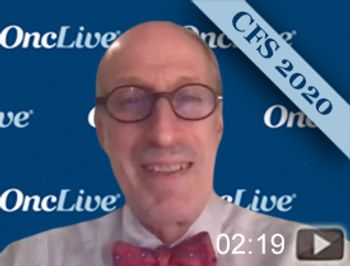
Jeffrey S. Weber, MD, PhD, discusses the evolution of the treatment paradigm in melanoma.

There is still a great deal to learn about the optimal use of BRAF-targeted therapy, as well as immunotherapy, in the adjuvant setting for patients with melanoma.

Douglas B. Johnson, MD, MSCI, discusses his research examining the impact of body composition on outcomes from anti–PD-1 with or without anti–CTLA-4 therapies in melanoma and other biomarkers under exploration.

Jason J. Luke, MD, FACP, discusses the role of targeted therapy in melanoma.


